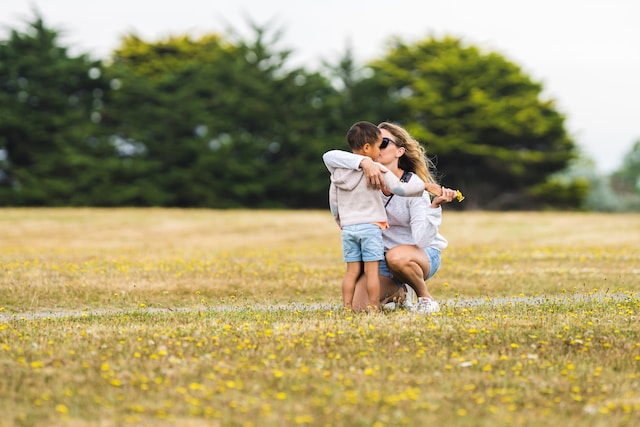Divorce can be strenuous for both parties involved, but it will often affect those around you too, especially if you have children. It is in the best interest of your children to deal with the separation amicably, but we understand that, regrettably, this is not always possible. Regardless, the emotional wellbeing of the children involved in a divorce must be regarded wholeheartedly and, at Newtons, we aim to support not only the needs of our clients, but their children too.
We have put together this guide to offer support for any parents who are going through divorce with children involved. In this video, Julie Fawcett, one of our senior family law solicitors, sums up how divorce affects children.
Transcript: “Certainly research conducted by Resolution in particular, when they’ve taken the point of view of the children, clearly states that the children want there to be less conflict, less criticism by the parents (each of them against the other) and they want a parenting plan, for themselves, which shows, certainty, commitment to the parents and communication. We can help with parenting plans.”
About Julie Fawcett
Although Julie’s expertise stretches across all aspects of family law, she is particularly interested in the law relating to families and children. Julie is a member of Resolution – the national organisation of family lawyers committed to non-confrontational divorce. In addition, as a representative of the Law Society Children Panel, Julie is able to represent children, parents, grandparents and other family members. Julie has been qualified since 1997, and works from our Ripon, Harrogate and Thirsk offices.
Divorce and Children
How does divorce affect children?
It is undeniable that divorce can affect children, no matter how old they are. As a result, you should understand and appreciate the impact of divorce on children as early on as possible. This will allow you to handle the divorce proceedings and the changes in your family dynamic as best as possible.
One of the potential impacts includes behavioural changes within your child. A divorce can be emotionally draining and it can be hard for both parents and children to focus on other things. Often, parents may be so caught up in their own emotions they don’t acknowledge their child’s emotions or response to the change. As a result of this, behavioural disruption can escalate.
Younger Children
The effects of divorce in younger children can include feeling as though their parents are acting unfairly. It can be confusing for young children going to a different house to see their other parent. This can come out in anxiety or difficulty sleeping / settling. Younger children are less likely to be able to understand the feelings that their parents are enduring and, as a parent, it is your role to accommodate that, rather than take it personally. A new routine can be a lot for anyone to take in, but specifically a young child. It’s important that these transitions are made as smooth as imaginable for the children, which is what our family law solicitors aim to do.
Older Children
A developing child who feels as though their feelings aren’t being validated will often transfer this frustration into their attitude towards education. It may affect the friendship groups they choose to accompany, and they may act out of character in order to gauge some sort of reaction from their seemingly distracted parents.
Remember that teens are also prone to stress due to the pressure of exams, fluctuating hormones, and so forth. Speaking to your teen about their feelings and if they’re finding this difficult, you may consider speaking to a professional, to avoid your child feeling neglected or unrecognised during this big change.
How can divorce positively impact young people?
Despite the stress and changes that occur during divorce, not all impacts of separation are negative:
- Children will likely have witnessed their parents living together through separation, and observed how their behaviour was towards one another, teaching them to how to cooperate with people they may not see eye-to-eye with in the future at school or work.
- Because each parent tends to have less time with their children post-divorce, quality time becomes more precious. Many parents often end up doing more things with their child after a divorce, so children often end up having more one-on-one time with each parent.
- Children that have experienced their parents divorcing likely become more adaptable to change in the future. They will often develop a resilient approach to life as they will have had to create coping methods when dealing with the changes. Life events such as this often enable children to become emotionally mature adults later in life. This can transpire into being an empathetic individual, applying the feelings they dealt with to situations they see others going through.
How do you help your children through your divorce?
It is crucial to approach divorce and children with consideration – this will help you take the right steps to ensure the transition is as comfortable as possible for everybody involved. Helping your child to cope through your divorce will help their future relationships when building trust and dealing with their future partners.
- Conversations surrounding the separation, including discussions regarding the legal side of your divorce and the reality of the conflict between both parties, should be had away from your children. Divorce is not an easy journey, emotionally or financially, so it is best to shield your child from adult worries. Ensure that you have another adult to offload your emotions onto as these worries should not be cast onto your child.
- Although change is inevitable in these circumstances, try to avoid disruption to their routine and day-to-day living as much as you can.
- Try not to discredit or talk negatively about the other parent around the child, as this can make a child feel torn and as though they have to choose between a parent. This can result in a feeling of bitterness towards both parents.
- Be sure to ask your child how their time was with their other parent to validate their feelings about it. Reassure them that you’re happy they had a nice time as opposed to pulling a face or making a negative remark. Your child will pick up on this behaviour which ultimately can make them feel as though they have to choose between the two.
- You should remind your children that the divorce is not their fault and that you love them and understand their feelings as frequently as necessary. Your children should know that support is available from you to them, at any time they may need it.
At Newtons, we understand this may not always be completely plain sailing, but try your best to co-parent lovingly. The love you have for your child should overpower any negative feelings you may have for your ex-partner. Remember to observe the situation through your child’s eyes.
How can Newtons Solicitors help?
At Newtons, we want to make this difficult transition as simple and comfortable as possible because we understand how sensitive separation is. It is our aim to assist you and your family and carry you through every stage of divorce.
If you are going through a divorce and children are in the picture, please don’t hesitate to contact our experienced family law team today.


